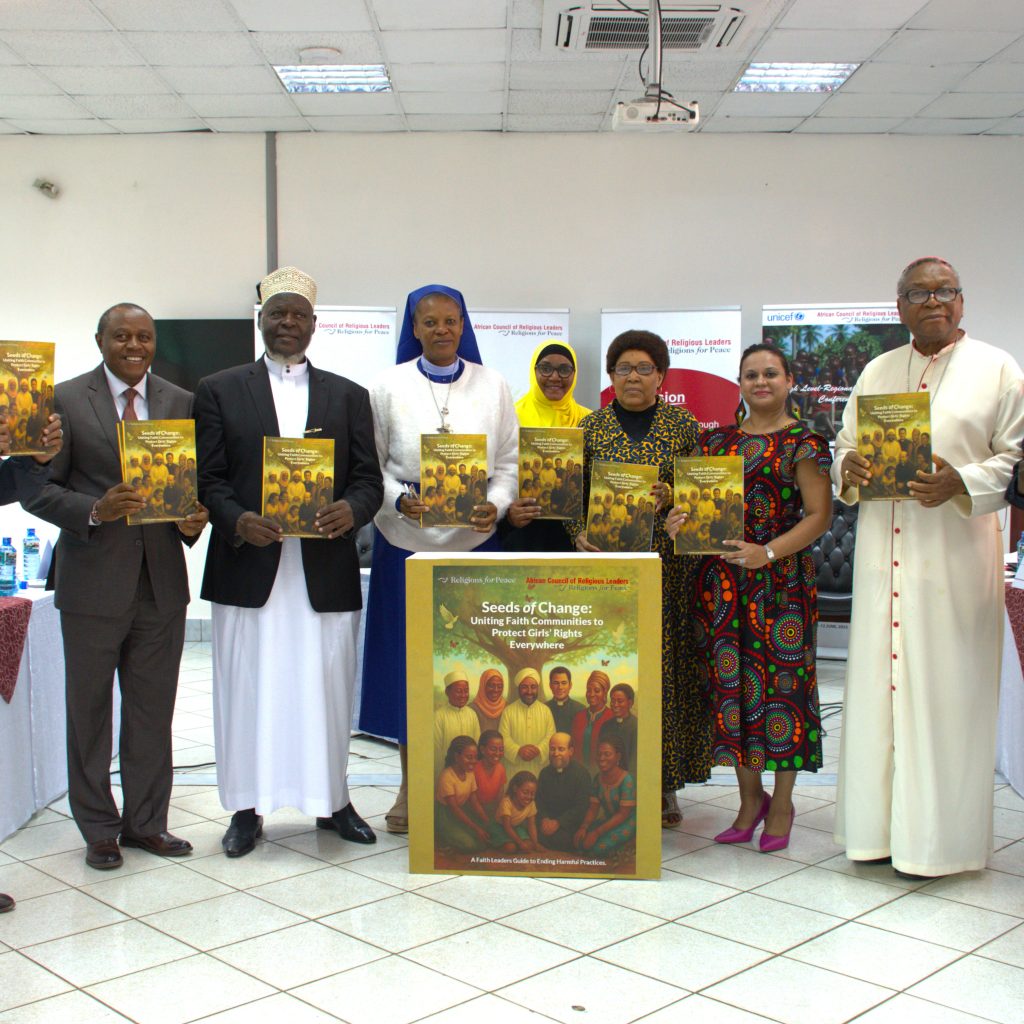Nairobi, Kenya – June 2025
On 12 June, faith leaders reaffirmed their unwavering resolve to end Female Genital Mutilation, Child Marriage and all forms of Harmful Practices. The Nairobi convening hosted by the African Council of Religious Leaders – Religions for Peace (ACRL-RfP) in collaboration with UNICEF Eastern and Southern Africa Regional Office (ESARO) gathered over 65 religious leaders, women of faith, interfaith youth, from 16 countries, Regional Religious coordinating bodies, development partners – UN-Women, World vision, GIZ and the Anti-FGM Board of Kenya for a 2 day Regional Interfaith Conference guided by the theme “Uniting Voices to End Harmful Practices and Promote Children’s Rights Everywhere,”.
The conference reaffirmed the essential role of religious leaders in confronting deeply rooted social norms that perpetuate violence against girls and women. With over 85 percent of Africa’s population identifying with a faith tradition, religious institutions continue to hold unparalleled influence in shaping values, offering spiritual guidance, and mobilizing communities for change.
In his remarks, His Eminence Sheikh Shaban Mubaje, Grand Mufti of Uganda and Co-Chair of ACRL-RfP, emphasized that
Harmful practices such as FGM and child marriage are not rooted in religious doctrine. Rather, they are misinformed traditions passed down through generations. His Eminence reminded delegates that neither the Holy Qur’an nor the Holy Bible supports any form of cutting of girls or the marrying off of children, and called on religious leaders to reclaim faith as a source of healing and dignity, not harm.
Among the most significant outcomes of the conference was the official launch of the Seeds of Change Toolkit: Uniting Faith Communities to Protect Girls’ Rights, developed through extensive consultation with faith leaders and scholars. The toolkit offers a comprehensive guide for transforming negative norms. It provides faith-based language, scriptural references and case studies that support advocacy efforts, community engagement and survivor-centered care. The toolkit follows a journey that begins with awareness, encourages personal and collective reflection, promotes concrete action and culminates in institutionalizing change within faith systems.
In addition to the toolkit launch, the conference also saw the adoption of a harmonized Regional Strategy for Engaging Interfaith and Community Leaders, Women, and Youth in Faith (2025–2029). This strategy developed participatively, presents a coordinated faith-based framework to eliminate FGM and child marriage through coordinated regional, national, and community action. Key priorities include fostering public declarations by religious leaders, strengthening legal and policy advocacy, addressing harmful social norms through interfaith collaboration, and enhancing support systems for survivors. The strategy also emphasizes the need for institutional safeguarding mechanisms within religious settings and calls for increased coordination between and among governments and regional bodies.
Throughout the two days, participants reflected on progress, entrenched challenges and existing initiatives and coalitions that have demonstrated hope, ranging from alternative rites of passage and media campaigns to scripturally grounded public declarations by faith leaders. These reflections underscored the need to build stronger partnerships, ensure sustainable planning and funding for children’s rights, deepen capacity and institutionalize faith actors to lead in the fight against harmful practices effectively.
The conference concluded with a joint Declaration citing commitments for faith leaders and institutions and a call to action to governments, development agencies and regional institutions to accelerate and scale up coordinated action across the region. The message was clear:-
Where legislation may face resistance, and where institutions struggle to reach, faith can lead the way, opening hearts, reshaping norms, and restoring the promise of a future where every child is safe, empowered, and free.
A new phase in Africa’s collective commitment to end Female Genital Mutilation (FGM) and Child Marriage.

